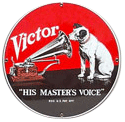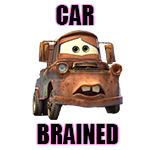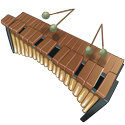|
cruft posted:It's probably safe to assume that any random person thinks leasing something in perpetuity sucks balls compared to owning something. Yep I hear you bro, I guess I was hoping for some special hack or whatever, but it's the way of the world. I can tell I'm ageing out of society lol
|
|
|
|

|
| # ? May 14, 2024 02:24 |
|
Is there any guidance on what an appropriate amount of practicing (of the piano, in this case) is to do in a day? I imagine there's some tipping point where you're too tired to benefit, and that it's probably different for different people, but I'm curious what findings there might be. Different question: any recommendations for improving speed at the piano without sacrificing accuracy? The piece I'm working on has some fast arpeggios that span 1.5 to 2 octaves, as well as some whole-hand chords that move around fast enough that I have trouble landing the jumps cleanly. For example:  The BPM on this piece is listed as 53 per dotted half note. I can sometimes manage to land the last measure on the first row there, but I feel like I need to be looking in two places at once, because both hands are doing jumps that I can't just do by feeling where I am on the keyboard. The second row is more doable, in the second that I can regularly get individual measures cleanly; I just struggle to get the entire passage cleanly. Either I'll slip in the right hand and hit extra notes, or the left hand will miss one of the jumps. Third question: any advice for finding a piano teacher that takes adult students? Everyone around me seems to be geared towards teaching kids.
|
|
|
|
I don't know about piano, but on guitar I find around 45 minutes of focused practice is about my limit before I need a break.
|
|
|
|
i usually practice piano about 1-2 hours, but broken into two sessions at different types of day
|
|
|
|
A theory question, but more of a thought while in the bathroom at work. Are power chords actually chords or are they technically double stops?
|
|
|
|
Disco Pope posted:A theory question, but more of a thought while in the bathroom at work. I thought I was in the electronics thread and was about to correct your spelling until I got very confused.
|
|
|
|
cruft posted:I thought I was in the electronics thread and was about to correct your spelling until I got very confused. Yeah, it's short for chorduroy
|
|
|
|
Earwicker posted:i usually practice piano about 1-2 hours, but broken into two sessions at different types of day Just cause I’m curious, what’s your threshold for stopping when you stop? Is it that you’re done with a specific selection of practice items, goal-based, hands/ears/brain just crapping out? This is to the room, so to speak ; I’m just generally curious and Earwicker’s post was a good one to quote.
|
|
|
|
I generally stop either when my performance is clearly degrading (don't practice sucking or you'll just get better at sucking) or when I get too frustrated or otherwise in the wrong mindset.
|
|
|
|
Why do stringed instruments tend to have the number of strings that they do? I'm aware that extended range guitars are a thing, but like is there any particular reason why six strings is the standard? Why are bass guitars the lowest four strings, and not the lowest three or five strings? I imagine there must be a practical reason for it.
|
|
|
|
I think it’s just historical/cultural reasons, lots of string instruments have an exciting number of strings. Sitars have 20ish, ouds have 11, and then on the other end the erhu only has two!
|
|
|
|
There are some practical historical reasons, like 6 strings allowing a full sound while also keeping it feasible to play chords using all strings using 4 fingers. Some might argue that 5 would be plenty though. Basses descent from the violin family, which is designed for single notes and bowing, which makes fewer strings more practical. But yeah, nowadays you have nerds playing 8 string guitars, mostly without playing full chords, and on the other end you get Stig from DAD playing two string bass because who the gently caress needs D and G: 
|
|
|
|
Commission a three string krappy punkrod and tune it to a power chord, play everything you need with one finger.
|
|
|
|
xzzy posted:Commission a three string krappy punkrod and tune it to a power chord, play everything you need with one finger. Custom builds are not very punk though, just rip the jazz strings (G b e) off a knock-off LP
|
|
|
|
Plus there are instruments that have courses of strings instead of just one string per note : like the mandolin is tuned like a violin as GDAE by default, but since it's 8 strings in 4 courses of 2 it's actually GGDDAAEE. There are a load of other non-standard tunings used in specific genres/tunes/moods/when the stars are right : "Cajun" tuning is used in some Zydeco and French Canadian music (FFCCDDGG) ; Old Time has a bunch of weird tunings but the biggest is probably the "sawmill" tunings (GGDDGGDD and AAEEAAEE) which get the name because it makes the whole instrument shake and resonate in some cool ways (Hangman's Reel is a personal favorite example). But the strings don't have to match at all either. Here's Sierra Hull playing Bill Monroe's Get Up John which is catchy and twangy as all hell because it's in the fun, ridiculous tuning F#ADDAAAE.
|
|
|
|
Also worth mentioning string gauge as a limiting factor - the lower you want to go, the thicker and/or longer the strings need to be, and thus the less space on the 'fingerboard' for those instruments generally, thus less strings. cf. the Octobass, more than one full octave lower than the double bass (and thus the modern electric bass), but it only has three strings, and they're so long you can't possibly reach the frets yourself and instead use a combination of levers and pedals to change notes. Didn't catch on, bizarrely. 5-string basses do have a lot of traction, it's worth mentioning, though the 'extra' string goes lower in frequency down where there's still not many other instruments operating. Adding an extra string on top is fine, but those notes tend to be covered by other instruments in the band and won't necessarily get heard through a mix, especially if the sound guy is not very accomodating. You can ask your band to play around that though, of course. Or maybe your guitarist could play a tenor guitar instead! It's an evolutionary process that continues to follow the development of music genres etc., I guess. A useful comparison point is modern 6-string basses vs. the Fender Bass VI - both '6-string bass' instruments but expressed very differently, different neck widths, string gauge and everything. e: Forgot to mention you can only put so many strings on an acoustic instrument before it collapses under the pressure, so there was a practical limit there too until the advent of magnetic pickups. free Trapt CD fucked around with this message at 18:00 on Apr 18, 2023 |
|
|
|
Fascinating stuff, thanks everyone!  Worth noting in this conversation, I think, are the Presidents of the United States of America; both the guitarist and bassist play two- or three-string guitars with heavier-gauge strings than normal. quote:Guitars modified in this way use heavy-gauge strings for a heavier sound and are normally tuned in Drop D, though the Presidents play half a step lower in C#. For a basitar, the strings are placed in the D and G positions. Chris uses a .60 gauge string tuned to C# and a .36 tuned to G#. On a guitbass, the strings are placed in the A, D, and G positions. .54 gauge tuned to C#, .42 to G#, and a .32 gauge tuned to C#. I was thinking about choosing one of their songs for a lift project in college and wondered how they got their sound until that dawned on me. I will also say - and maybe this is heretical - I don't really 'get', or like, five-string basses. Maybe I've just never heard one through a proper amp setup but it seems to me that enormous low B string doesn't really sound like anything good at all. It's too low for the fundamental to really come through (believe me, I like sub bass, it's just not there) so all you get is attack and this unpleasant metallic harmonic series. I've argued this at length with my jazz guy friend who loves it. I think it sounds like dogshit. Unless you've got some creative use of distortion going on, I probably don't want to hear your five-string bass.
|
|
|
|
xzzy posted:Commission a three string krappy punkrod and tune it to a power chord, play everything you need with one finger. Isn't this the exact technique used by the guitarist from The Presidents Of The United States Of America?
|
|
|
|
I think Keith Richards also routinely discards the high e or just uses those tenor guitars that have four strings.
|
|
|
|
cruft posted:Isn't this the exact technique used by the guitarist from The Presidents Of The United States Of America? Yes, but they use normal guitars. Not one-offs made by some eccentric in north carolina.
|
|
|
|
Xiahou Dun posted:Plus there are instruments that have courses of strings instead of just one string per note : like the mandolin is tuned like a violin as GDAE by default, but since it's 8 strings in 4 courses of 2 it's actually GGDDAAEE. there's also a variant of the mandola where the paired strings are tuned an octave apart. it sounds really cool.
|
|
|
|
Earwicker posted:there's also a variant of the mandola where the paired strings are tuned an octave apart. it sounds really cool. The bazouki and they absolutely rule. I have lusted after one for a while now. It’s pretty high up on my list, even above like a hurdy gurdy or a nyckelharpa.
|
|
|
|
At a big show like this: https://www.youtube.com/watch?v=S4Omtt1xC-o How many of the guitars are actually plugged in? It really doesn't look like any of the four main guys are actually playing what you're hearing and I imagine it would be a big mess with 6? 7? guitars going all at once.
|
|
|
|
all of them, they’re all famous guitarists but that doesn’t mean they’re each playing unique parts, or even all playing at the same time—notice how a lot of the time willie nelson just isn’t playing, and two of the other singers are playing the same chords with the same voicings
|
|
|
|
I was recently reading about Anthony Jackson, and his opinion that the electric bass really should be a 6 string instrument, because it's part of the guitar family, not the classical bass family. I'm not sure I'm convinced, but it's definitely not set in stone, especially since the electric bass is such a relatively new instrument.quote:Why is four [strings] the standard and not six? As the lowest-pitched member of the guitar family, the instrument should have had six strings from the beginning. The only reason it had four was because Leo Fender was thinking in application terms of an upright bass, but he built it along guitar lines because that was his training. The logical conception for the bass guitar encompasses six strings. Mister Speaker posted:I will also say - and maybe this is heretical - I don't really 'get', or like, five-string basses. Maybe I've just never heard one through a proper amp setup but it seems to me that enormous low B string doesn't really sound like anything good at all. It's too low for the fundamental to really come through (believe me, I like sub bass, it's just not there) so all you get is attack and this unpleasant metallic harmonic series. I've argued this at length with my jazz guy friend who loves it. I think it sounds like dogshit. Unless you've got some creative use of distortion going on, I probably don't want to hear your five-string bass.
|
|
|
|
I like to use a five-string bass when the extra five half steps will allow me to descend through an entire phrase instead of having to play an octave higher or jump up to a D or whatever. Like Mr. Blue Sky in the chorus starts on a D and ends on a Bb. I tune my low b string down a half step and then I can walk down the entire time and I like it better.
|
|
|
|
My main bass is a 5 string, mostly because my former band played Rock Music in E and it was nice to sometimes approach said E from below.
|
|
|
|
Jazz Marimba posted:all of them, they’re all famous guitarists to be fair, all four of the main guys are very low in the mix, as evidenced by the fact that the sound doesn't change much when all four put down their guitars and walk off stage lol
|
|
|
|
Yeah maybe "plugged in" is the wrong word, but you're clearly not hearing four acoustics and two electrics, even when they're all visibly "playing."
|
|
|
|
I didn't want to throw in first because I've never done sound for an event this big, but now I feel comfortable saying what's most likely is that everyone is in fact going to the mixer, and they just turned a lot of stuff to inaudibly low. They may have even done sound checks just in case one of the performers would get their feelings hurt if they were told what was going to happen in reality. At least one of the performers surely knows what's up. Maybe Willie Nelson. Others might too, and they're still strumming just so they don't feel like a doofus standing around on stage. Backup singers have my respect, I'd feel way to vulnerable if I weren't behind an instrument. E: and stand-up comics. Terrifying. cruft fucked around with this message at 16:36 on Apr 21, 2023 |
|
|
|
cruft posted:At least one of the performers surely knows what's up. Maybe Willie Nelson. Others might too, and they're still strumming just so they don't feel like a doofus standing around on stage. Backup singers have my respect, I'd feel way to vulnerable if I weren't behind an instrument. At least stand-ups have the mic to play with. The worst is seeing someone who normally plays an instrument end up out front singing, without the instrument, and you can tell they have no idea what to do with their hands or feet or body. Painful to watch.
|
|
|
|
Something I'm curious about since I've been embroiled in a couple of threads about 'high-resolution digital audio', analog vs. digital and all that nonsense: Are there any instruments that do produce oddly-loud overtones outside of the range of human hearing? I'm sure this is something that nobody concerns themselves much with because it ultimately doesn't matter, and obviously also just about every instrument does have harmonics higher than what we hear (the series doesn't just stop at the edge of our hearing), but I'm wondering if anyone has noticed, like, a flute making dogs go crazy or something, because it's got a pronounced amplitude bump at like 40kHz or something that we would just never hear.
|
|
|
|
Guitar quartets are a thing, there was a very cool one on NPR Tiny Desk recently. https://www.youtube.com/watch?v=Tu_PRf1tyjI
|
|
|
|
anyone managed to go full ham on acoustic treatment? mine is a work in progress (4 panels so far) and the difference is huge, to where i think this was “it” all along. like all that really matters is room and speakers, other gear isn’t that important
|
|
|
|
|
also, what are your general daw templates like for mixing? channel strip: utility > gate > subtractive eq > compressor > additive eq > saturation > clipper return channels: short/medium/long reverb > eq groups/buses: drum tracks melodic tracks, subgrouped to bass/mids/leads/vocals clipping/limiting on each bus 2-bus: clipper > mid side eq > glue comp > limiter > metering not sure if saturation should be elsewhere in the chain
|
|
|
|
|
Is there a current hotness for routing midi on Windows these days? I got a situation where an app (midinous) creates a midi port on startup and I want to send its midi through my external interface (an iconnectivity product) to hardware devices. I cannot convince my interface's config app to recognize the existence of midinous' port and this is sending me down the road of finding a software router. However, everything google is suggesting looks like it was last updated in 2005 and looks sketchy as hell. Which prompts me to ask how people are doing this these days, or if they're doing it at all.
|
|
|
|
Hey Musician Forum. Anybody out there insuring their instruments? Who do you use (if US-based)?
|
|
|
|
if it's a vintage instrument, there's some guys out there that like verify vintage instruments and can provide paperwork that would be helpful in that regard
|
|
|
|

|
| # ? May 14, 2024 02:24 |
|
xzzy posted:Is there a current hotness for routing midi on Windows these days? I got a situation where an app (midinous) creates a midi port on startup and I want to send its midi through my external interface (an iconnectivity product) to hardware devices. I cannot convince my interface's config app to recognize the existence of midinous' port and this is sending me down the road of finding a software router.
|
|
|



















 ~*
~*












